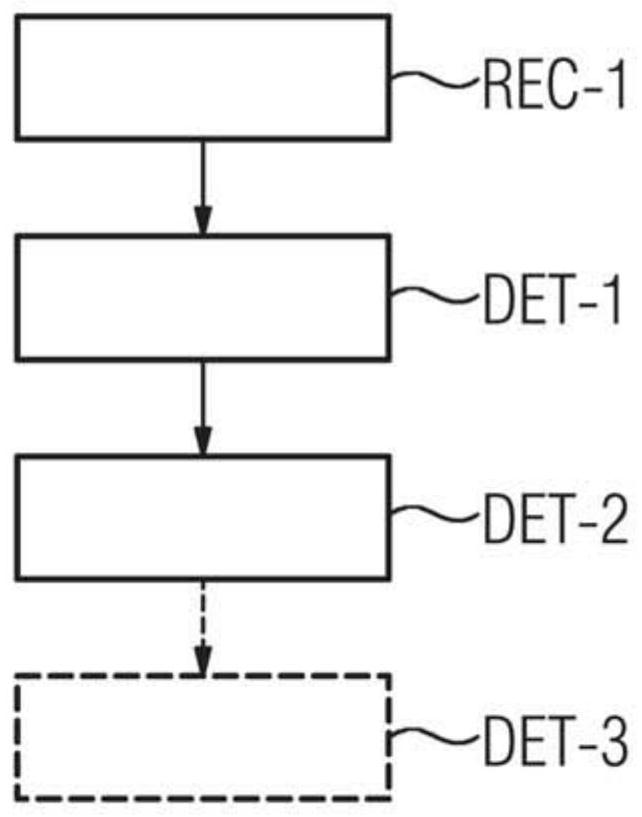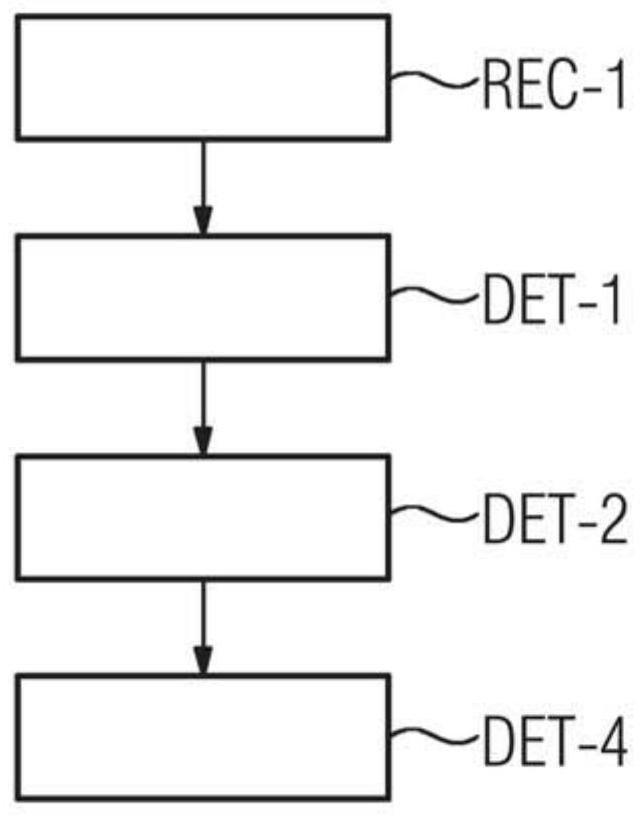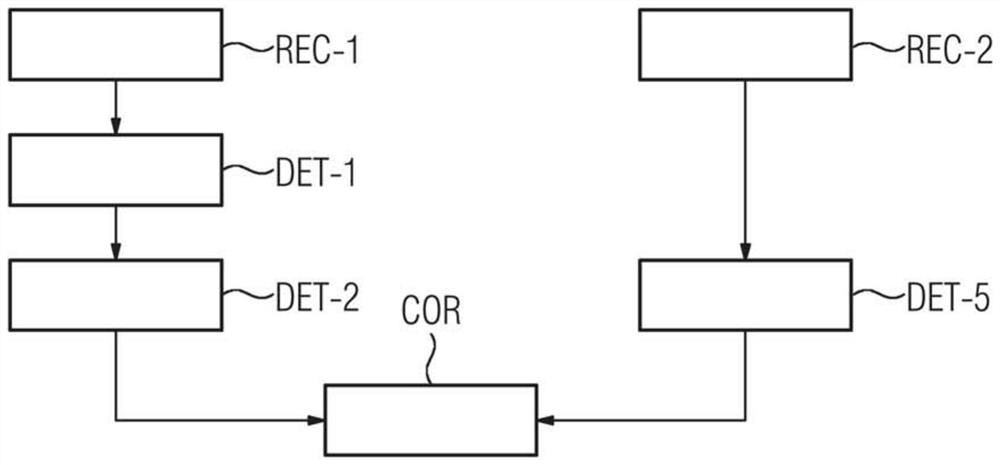Determination of reference dose parameters for computed tomography
A reference dose, tomography technology, used in radiological diagnostic image/data processing, computed tomography scanners, instruments for radiological diagnosis, etc.
- Summary
- Abstract
- Description
- Claims
- Application Information
AI Technical Summary
Problems solved by technology
Method used
Image
Examples
Embodiment Construction
[0051] figure 1 A flow chart of a first embodiment of a method for determining a reference dose parameter is shown.
[0052] The first step of the first embodiment shown is to first receive, via the interface 401 , the water-equivalent diameter of the section of the REC-1 examination volume. In particular, the water-equivalent diameter can be recorded in advance on the basis of a localization slice of the examination volume.
[0053]A second step of the first illustrated exemplary embodiment is the first determination of the DET-1 noise level based on the water-equivalent diameter by means of the calculation unit 402 , wherein this noise level is an upper threshold value for the noise of the CT image dataset. In this embodiment, the noise of a CT image is defined as the standard deviation in measured Hounsfield units for an area with constant actual Hounsfield units. The region with constant actual Hounsfield units can be the air shown in the image dataset, alternatively the...
PUM
 Login to View More
Login to View More Abstract
Description
Claims
Application Information
 Login to View More
Login to View More - R&D
- Intellectual Property
- Life Sciences
- Materials
- Tech Scout
- Unparalleled Data Quality
- Higher Quality Content
- 60% Fewer Hallucinations
Browse by: Latest US Patents, China's latest patents, Technical Efficacy Thesaurus, Application Domain, Technology Topic, Popular Technical Reports.
© 2025 PatSnap. All rights reserved.Legal|Privacy policy|Modern Slavery Act Transparency Statement|Sitemap|About US| Contact US: help@patsnap.com



